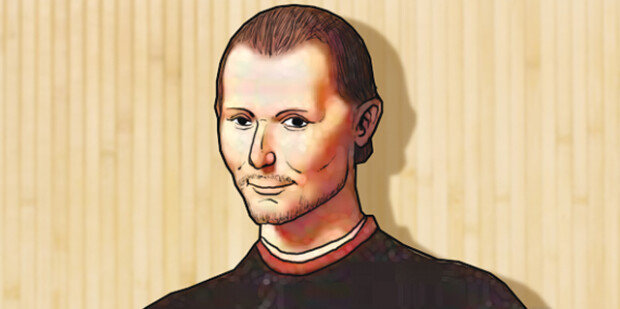Machiavelli’s defeat
Machiavelli’s defeat
Posted January. 29, 2019 07:51,
Updated January. 29, 2019 07:51

Italian philosopher Machiavelli’s notable work “The Prince” had continuously triggered controversies until the 20th Century. There have been mixed opinions on whether the book presents groundbreaking insights into leadership. American philosopher Will Durant (1885-1981) once commented that numerous leaders could put Machiavellianism into practice, even better than Machiavelli himself. Looking back on history, we’ve seen not a few leaders who were both “the lion and the fox,” examples of cunning and force in the book.
Machiavelli laid bare the nature of rule, which had been hidden behind the cape of a ruler. Descriptions within “The Prince” that the aims of princes can justify the use of immoral means to achieve those ends made everyone uncomfortable, but ironically enough, the book can be also interpreted as having encouraged people to ponder over the true sense of democracy and righteous measures to achieve it.
Though unintentionally, Machiavelli also contributed to introducing a subtle, instigative logic. He confidently preached his reasoning as if he was an honest, conscientious intellectual as well as a serious thinker and a talented person with time-honored backgrounds and hands-on experience. While doing so, he hid, distorted, or ignored any evidence that might be used to undercut his logic. If he ran into a brick wall, Machiavelli appealed to people’s emotions.
During the time when mercenary wars used to frequently break out, Machiavelli introduced conscription in Florence for the first time in Europe, for the reason that civilian soldiers who fight for their family, not for money, are stronger. However, when the Spanish military invaded, the citizen militia ended up running away. Of course, a right attempt can lead to a failure, and you shouldn’t judge only by results. Yet, what he presented in his other work “The Art of War” was another example of distorted facts to back his own logic. While presenting the Roman military organization as a model and advocating a citizen militia, Machiavelli belittled the roles of commissioned officers and professional soldiers, even though professionalism was what enabled the Roman military to succeed. While pretending to be a progressive person, he also downplayed the potential of cannon. Moreover, he classified Swiss mercenaries, one of the representative hired soldiers during the 16th Century, as a citizen militia. This absurd criterion would make every single military organization be categorized as a citizen militia.
In fact, even intellectuals easily fall for Machiavelli’s logic. A better intellectual employs the method he used to become a best-selling author. It seems Machiavelli was a great pioneer in various respects.
Eun-Taek Lee nabi@donga.com







